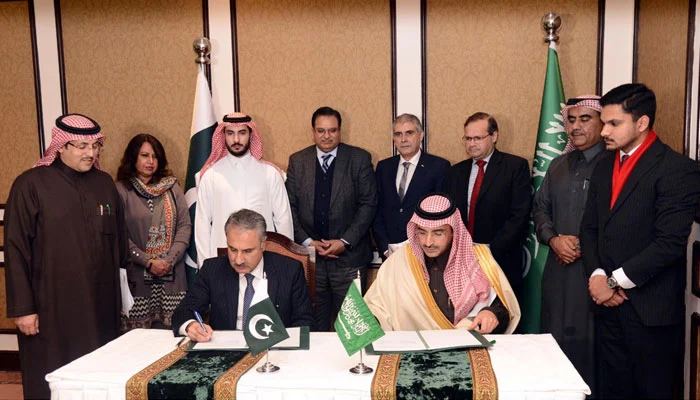Business
Pakistan, Saudi Arabia ink agreement to finance $1bn oil derivatives
-

 Latest News13 hours ago
Latest News13 hours agoThe team’s failure to capitalize against India is acknowledged by Mohammad Rizwan.
-

 Latest News13 hours ago
Latest News13 hours agoPakistan Provides Gaza With 100 Tonnes Of Crucial Aid
-

 Latest News12 hours ago
Latest News12 hours agoAlibaba pledges to invest $53 billion in cloud computing and AI by 2027.
-

 Latest News12 hours ago
Latest News12 hours agoMore than 10 energy projects are nearing completion in Khyber Pakhtunkhwa.
-

 Latest News13 hours ago
Latest News13 hours agoSeven Khwarij are killed by security forces in Dera Ismail Khan.
-

 Business13 hours ago
Business13 hours agoAfter more than 50 years, Bangladesh and Pakistan resume direct trade.
-

 Latest News13 hours ago
Latest News13 hours agoImproving Trade Relations With Azerbaijan Is Pakistan’s Goal
-

 Business13 hours ago
Business13 hours agoThe amount of trade between Saudi Arabia and Pakistan hits $700 million.






















